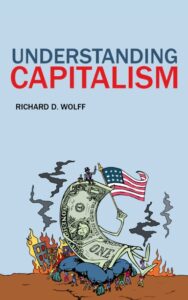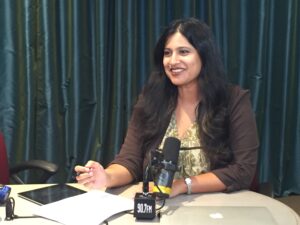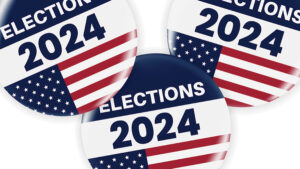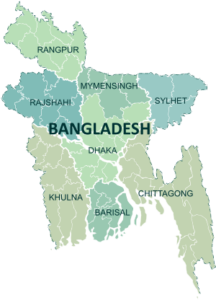Labor Militancy Is The Only Way To Increase Union Membership

Agitated workers face the factory owner in The Strike, painted by Robert Koehler in 1886
09-01-2024 ~ We need to rebuild the labor movement, and that means not going back to the kind of unions that existed in the postwar era. We need unions with a radical vision, unions that exert power in the workplace and society.
With Labor Day 2024 upon us, it is important to critically reflect on the current state of the U.S. labor movement and the challenges that it faces in an environment where Big Business dominates the economy and mainstream society continues to abide allegiance to the values of a Lockean political culture in which ruthless individualism reigns supreme. To put it mildly, without a strong labor movement and a public spirit guiding our institutions, the country will never succeed in realizing the vision of a just and fair society.
However, the news on the labor front is not very encouraging. The share of U.S. workers who belong to a union has been declining since the early 1980s—an era which coincides with the full swing of the neoliberal counterrevolution and deindustrialization. In 1983, the first year for which comparable data are available, the union membership rate was 20.1 percent and declined to 11.1 percent in 2015.
In 2021, the union membership rate was 10.3 percent and dropped to 10.1 percent in 2022. In 2023, union membership declined even further to 10.0 percent, which is a historic low.
The irony is that the United States has seen a “union boom” over the last couple of years. Thousands of employees at Starbucks stores across the country have voted to unionize and workers at Amazon warehouses and Trader Joe’s, grad students, and Uber and Lyft drivers also joined the unionization fight. But the data, as cited above, tells a different story. The share of U.S. workers belonging to a union continues to decline and is now at the lowest rate in history. Today, organized labor in the United States is dominated by public-sector employees, which is more than five times higher than the 6 percent rate of private-sector employees. Read more
Why Poverty Reduction Under Capitalism Is A Myth

Paperback ISBN: 978-1-7356013-6-6
eBook ISBN: 978-1-7356013-5-9
08-27-2024 ~From its beginnings, the capitalist economic system produced both critics and celebrants, those who felt victimized and those who felt blessed. Where victims and critics developed analyses, demands, and proposals for change, beneficiaries, and celebrants developed alternative discourses defending the system.
Certain kinds of arguments proved widely effective against capitalism’s critics and in obtaining mass support. These became capitalism’s basic supportive myths. One such myth is that capitalism created prosperity and reduced poverty.
Capitalists and their biggest fans have long argued that the system is an engine of wealth creation. Capitalism’s early boosters, such as Adam Smith and David Ricardo, and likewise capitalism’s early critics such as Karl Marx, recognized that fact. Capitalism is a system built to grow.
Because of market competition among capitalist employers, “growing the business” is necessary, most of the time, for it to survive. Capitalism is a system driven to grow wealth, but wealth creation is not unique to capitalism. The idea that only capitalism creates wealth or that it does so more than other systems is a myth. Read more
Harris’s Failed Opportunity?

Sonali Kolhatkar
08-26-2024 ~ Kamala Harris chose to embrace Republican language on the economy even if she backs progressive politics.
During her nearly 40-minute-long speech on the final day of the 2024 Democratic National Convention in Chicago, Vice President Kamala Harris laid out her economic plan for the nation as “an opportunity economy where everyone has the chance to compete and a chance to succeed.”
I deliberately chose not to watch her speech, preferring instead to read it. The ebullience at this year’s DNC was infectious. The Democratic Party is leaning into some of the language of progressive economic populism and is energized by a younger, more enthusiastic nominee. But reading Harris’s speech rather than watching it, helped bring some distance from the joy and clarified that the party is still not embracing the language of progressive economic populism and continues to use the destructive language of the right. Read more
Interest Rate Cuts Now Could Help Workers. But That’s Not Who The Fed Serves.

Prof.dr. Gerald Epstein
08-26-2024 ~ Progressive economist Gerald Epstein says the Fed is more sensitive to the needs of the wealthy few than the rest of us.
The Federal Reserve hasn’t changed interest rates since July of last year, after 11 hikes between March 2022 and July 2023 in the hope that higher borrowing costs would slow down consumer and business demand so inflation rates would drop. It kept the benchmark interest rate unchanged in its latest meeting ending July 31, 2024, but Federal Reserve Chair Jerome Powell said that the first rate cut in four years “could be on the table” in September. Nonetheless, the Fed has faced criticism for its refusal to lower rates, though inflation rates have moved steadily lower. By tightening monetary policy, the Fed hurts consumers’ financial lives and even increases unemployment. So why has the Fed been so reluctant to cut interest rates?
The main reason, argues renowned progressive economist Gerald Epstein in the exclusive interview for Truthout that follows, is because the Fed is “more sensitive to the needs of the wealthy few than the rest of us.” As such, the Fed’s claim that it is an independent government agency is a complete myth. Epstein is professor of economics and co-director of the Political Economy Research Institute (PERI) at the University of Massachusetts Amherst, and author of the recently published book Busting the Bankers’ Club: Finance for the Rest of Us (University of California Press, 2024). Read more
The Profound Implications Of The 2024 US Election
 08-24-2024 ~ This election is indeed unlike any other in modern history because American voters are so polarized that the threat of civil breakdown is real.
08-24-2024 ~ This election is indeed unlike any other in modern history because American voters are so polarized that the threat of civil breakdown is real.
Since U.S. Vice President Kamala Harris took the reins from President Joe Biden, the presidential race has tightened in key battle states as the momentum has shifted in Democrats’ favor. Why do so many people say that the 2024 presidential race is pivotal for the future of democracy? And what would a Kamala Harris foreign policy look like with regard to the transatlantic relationship, Ukraine’s war effort, China, and Gaza?
Political scientist and political economist C. J Polychroniou tackles these questions in an interview with the French-Greek independent journalist Alexandra Boutri. Unlike many radicals who won’t support the Democratic ticket if Harris does not change her policy on Israel, Polychroniou thinks that the 2024 presidential election has great implications beyond Gaza.
Alexandra Boutri: For the next couple of months or so, U.S. elections will be under the spotlight. It has been argued that because of Trump’s embrace of authoritarianism, the 2024 presidential election is pivotal for the future of U.S. democracy, critically consequential to Washington’s European allies, and potentially transformative for today’s geopolitical realities. Donald Trump and Kamala Harris also differ radically when it comes to climate change, immigration, and the economy. They are also quite apart across a broad range of issues related to gender identity and sexual orientation. Do you agree then with the view of many people who say 2024 is the most important election of their lives?
C. J. Polychroniou: The 2024 U.S. presidential election is enormously important for many of the reasons you cited, although we shouldn’t be oblivious of the fact that parochialism is what drives most American voters. That said, this election is indeed unlike any other in modern history also because American voters are so polarized that the threat of civil breakdown is real. In fact, I believe that Trump is already laying the groundwork for rejecting the election result if he loses. This is why he calls Democrats’ replacement of Biden a “coup” and even “a violent overthrow” of a president. And back in March, he said that there will be a “bloodbath” if he loses the November election. Obviously, there is something very wrong with the contemporary political culture in the U.S. I mean, compare what is happening in the U.S. to Britain’s political culture where civility is still the name of the game. Former Prime Minister Rishi Sunak not only conceded defeat and congratulated Labour’s leader, Keir Starmer, for his party’s victory, but took responsibility for the Tory party’s worst defeat in history. Read more
Will Bangladesh Be Another Egypt?
 08-24-2024 ~ The day after former Bangladeshi Prime Minister Sheikh Hasina left Dhaka, I was on the phone with a friend who had spent some time on the streets that day. He told me about the atmosphere in Dhaka, how people with little previous political experience had joined in the large protests alongside the students—who seemed to be leading the agitation. I asked him about the political infrastructure of the students and about their political orientation. He said that the protests seemed well-organized and that the students had escalated their demands from an end to certain quotas for government jobs to an end to the government of Sheikh Hasina. Even hours before she left the country, it did not seem that this would be the outcome. Everyone, he told me, had anticipated more violence from the government.
08-24-2024 ~ The day after former Bangladeshi Prime Minister Sheikh Hasina left Dhaka, I was on the phone with a friend who had spent some time on the streets that day. He told me about the atmosphere in Dhaka, how people with little previous political experience had joined in the large protests alongside the students—who seemed to be leading the agitation. I asked him about the political infrastructure of the students and about their political orientation. He said that the protests seemed well-organized and that the students had escalated their demands from an end to certain quotas for government jobs to an end to the government of Sheikh Hasina. Even hours before she left the country, it did not seem that this would be the outcome. Everyone, he told me, had anticipated more violence from the government.
These protests in Bangladesh this year are not unique. They are part of a cycle of protests that started at least a decade ago, with the issues (an end to the quotas, better treatment of students, less government repression) being similar. These are not simple protests around simple demands that can be easily addressed. The demands—such as quotas—return Bangladesh to what the elite has tried desperately to repress: the ugly history of the country’s origins. The quotas are for freedom fighters who risked life and limb to battle the Pakistani military in 1971 and who won independence for Bangladesh. While it is true that such quotas should not be sustained over generations, it is also true that the issue of the quota is caught up partly with the problems of employment for educated, young people, and partly with the reassertion of the Islamist forces in Bangladesh who had been compromised by their association with the Pakistani violence. After the 2018 anti-quota movement, Sheikh Hasina’s government decided to cancel the system. The decision went to the courts. The High Court argued that the quotas had to be reinstated, but the Supreme Court—in June 2024—decided that the quotas would not be fully reinstated, but only partly (7 percent for freedom fighters’ children, and not 30 percent). This was the spur for a renewed protest movement. It targeted Sheikh Hasina’s government rather than the courts. Read more


